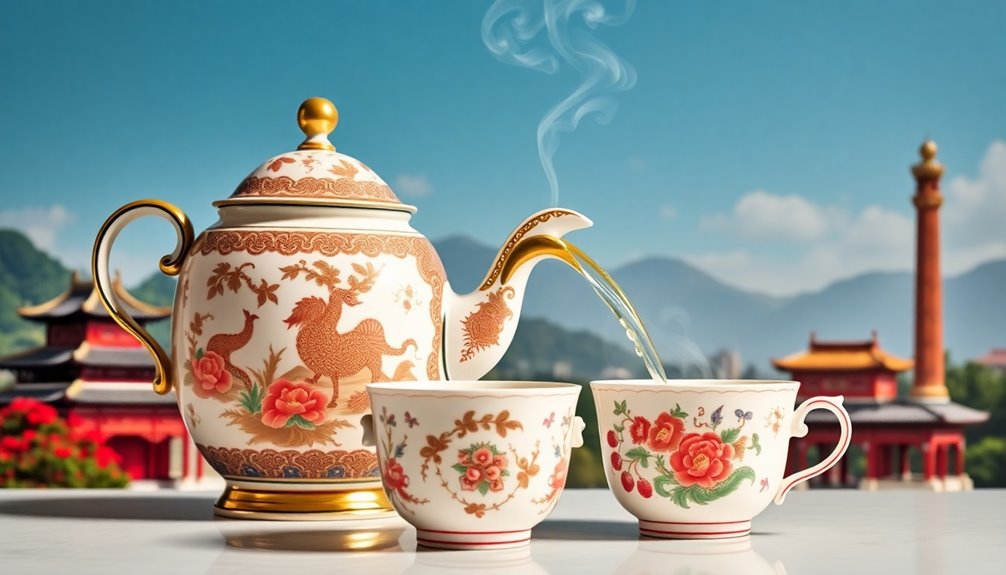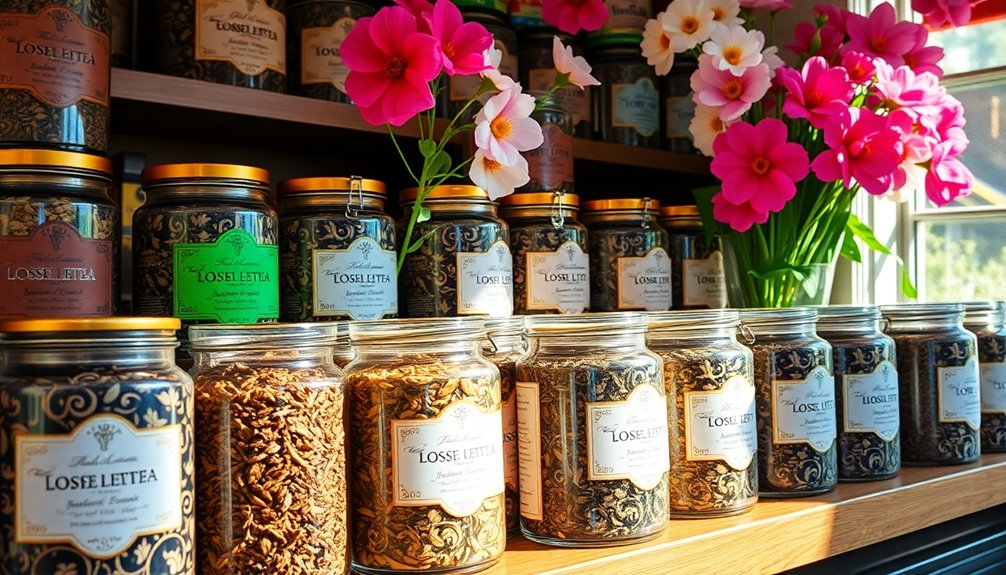Tea's influence on British and Chinese relations is fascinating! It all began in the 17th century when tea became a popular drink in Britain. The British East India Company started trading tea, leading to a trade imbalance with China. To fix this, they smuggled opium, causing conflicts like the Opium Wars. These wars changed the trading landscape, with the Treaty of Nanking opening more ports and handing Hong Kong to Britain. Later, Britain tried to grow its tea in India, reducing dependency on China. So, tea wasn't just a drink; it was a key player in historic events that shaped our world. Discover even more about this intriguing story!
Key Takeaways
- The introduction of tea in Britain created a cultural shift, increasing demand and establishing a significant trade relationship with China.
- The British East India Company's trade practices led to a trade imbalance, resulting in silver exports and later opium smuggling to rectify it.
- Opium smuggling, driven by British merchants' interests, shaped conflicts such as the Opium Wars, significantly impacting British-Chinese relations.
- The Treaty of Nanking, which ceded Hong Kong to Britain, exemplified the exploitation and ethical issues arising from imperial trade practices.
- British efforts to cultivate tea in India post-Opium Wars aimed to reduce reliance on China, altering the dynamics of tea trade between the nations.
Introduction
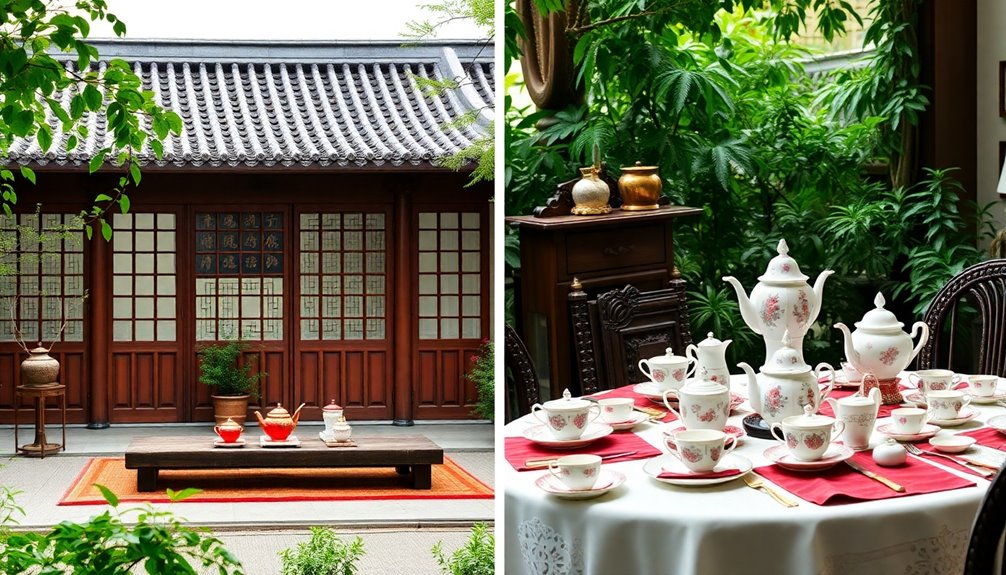
Tea's arrival in Britain during the 17th century marked a pivotal moment in both British culture and trade relations with China. When you think about tea today, it's hard to believe it was once a luxury item. Thanks to the British East India Company, Chinese tea became highly sought after, leading to a boom in trade.
However, this created a trade imbalance with China, as Britain ended up exporting silver to pay for tea. To fix this issue, the British turned to opium, which they began smuggling into China. This led to the Opium Wars between 1839 and 1842.
These conflicts arose because British merchants wanted to balance their payments and keep the tea flowing. After Britain's victories, the Treaty of Nanking in 1842 forced China to make significant concessions, like opening ports to British trade.
This complex relationship around tea didn't just influence commerce; it changed how both countries interacted. Events like the Great Tea Race of 1866 showed just how far British merchants would go to secure fresh Chinese tea, highlighting the deep ties between Britain and China through the love of tea.
Tea's Role in Imperial Expansion
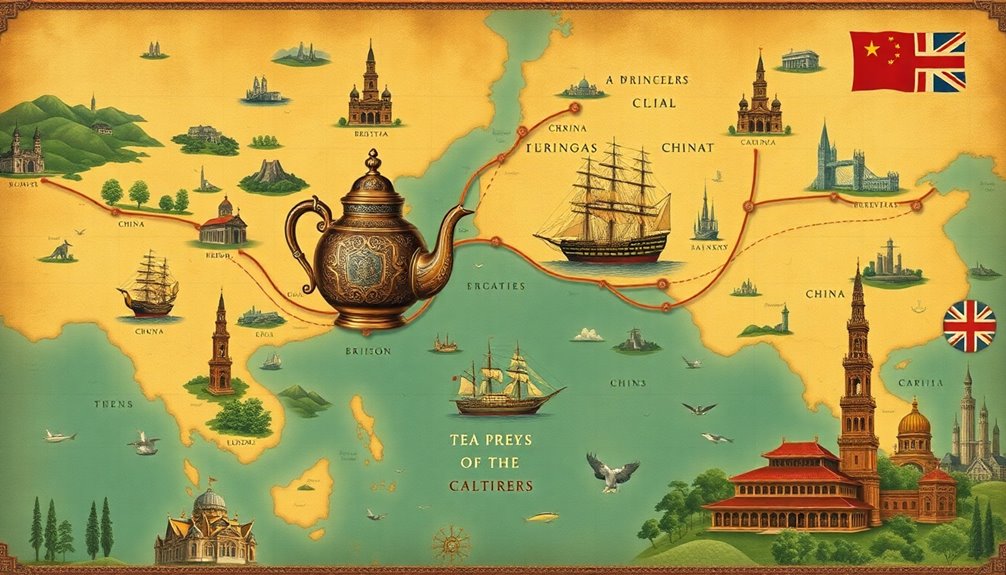
The war resulted in the Treaty of Nanking, which gave Hong Kong to Britain and opened several Chinese ports for British trade.
Meanwhile, the British were also working on tea cultivation in places like India. In 1848, Robert Fortune smuggled tea plants from China, marking a shift to grow tea outside of China.
This move aimed to make Britain self-sufficient in tea and reduce China's dominance in the global tea market.
The legacies of the tea trade and imperial expansion continue to influence British and Chinese relations today, reminding us of a complicated history of exploitation and resistance.
Tea Smuggling Reshaped Trade Dynamics
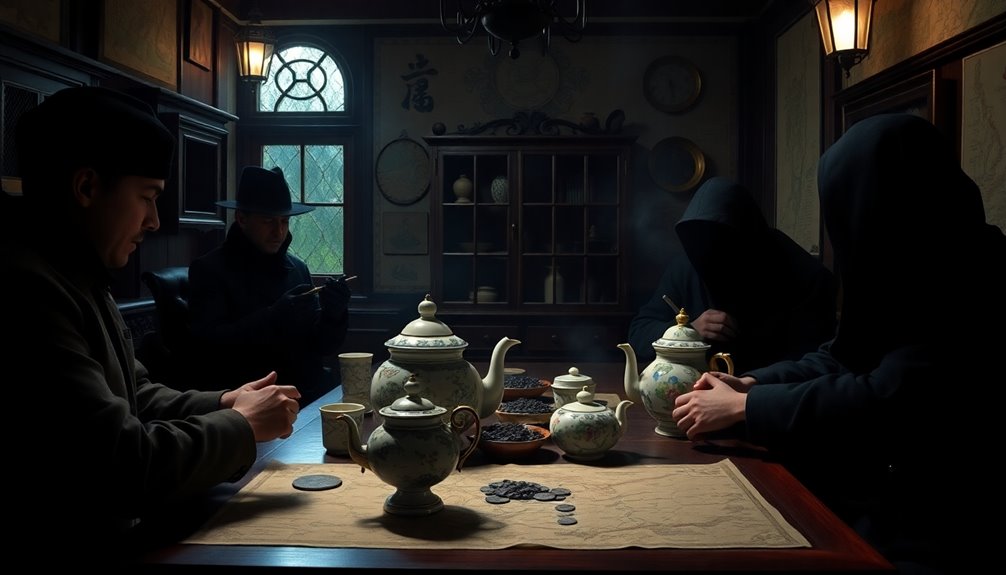
This shift in trade dynamics sparked conflicts with China, notably the Opium Wars.
These events reshaped British-Chinese relations significantly, as the smuggling of tea and the opium trade altered how both nations interacted with each other in the years to come.
Scottish Botanist's Daring Heist

This shift addressed the trade imbalance that had strained British finances, as tea was one of the most sought-after commodities.
Fortune's efforts transformed the global tea trade, ultimately changing British and Chinese relations.
No longer would Britain depend entirely on China for its beloved drink.
Instead, Fortune's daring heist paved the way for a new era of tea cultivation, showcasing the adventurous spirit of one determined botanist.
Opium Trade's Ethical Implications
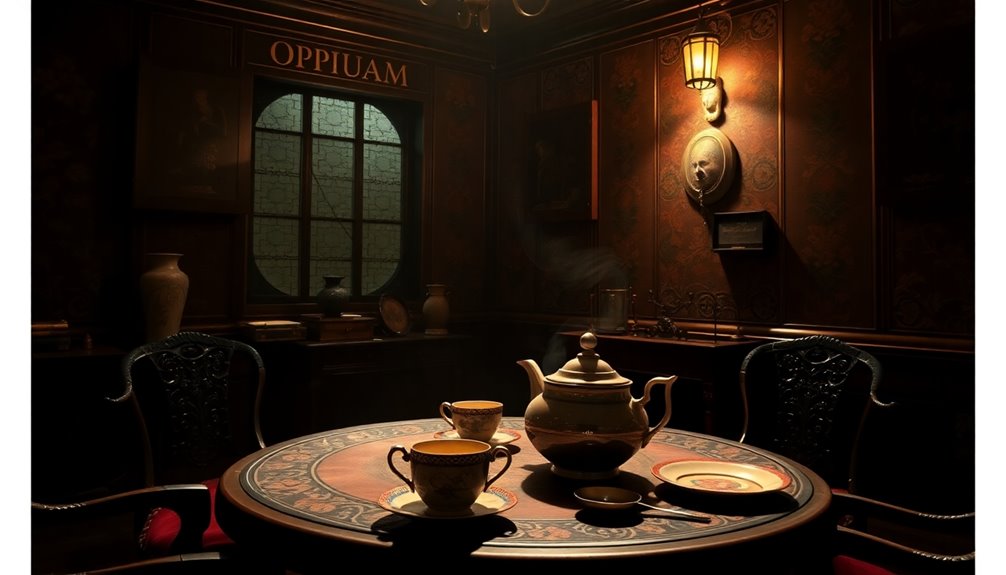
Numerous ethical concerns arise from the opium trade that Britain initiated to fix its trade deficit with China. British merchants, driven by profit, smuggled opium into China to satisfy their demand for tea in China. This trade didn't just help balance their economy; it caused severe problems for the Chinese population.
As more people became addicted, social unrest grew, leading to serious consequences for families and communities. The Chinese government tried to stop this harmful trade and confiscated opium stocks in 1839.
However, this action sparked the First Opium War, as Britain retaliated militarily. The Treaty of Nanking, signed in 1842, imposed harsh terms on China, forcing it to open several ports to British trade and cede Hong Kong.
This treaty further demonstrated the ethical implications of British imperialism, as it highlighted the exploitation of vulnerable populations for economic gain.
Practical Applications
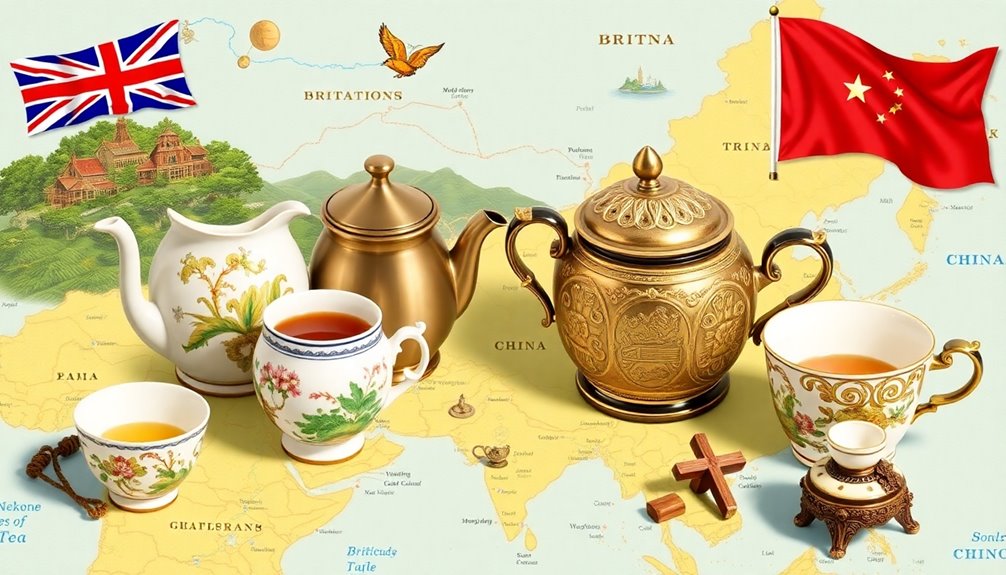
While the historical context of tea and British-Chinese relations reveals a complex web of trade dynamics, its practical applications today can provide valuable insights into modern international trade practices.
You might be surprised to learn how British demand for tea from China shaped not just economies, but also cultures. For instance, the trade imbalance between Britain and China led to the Opium Wars, a conflict over trade practices and opium smuggling.
Understanding these historical lessons can help you appreciate the importance of fair trade today. When countries engage in global trade, they need to ensure that both sides benefit, avoiding imbalances that lead to conflict.
The introduction of tea cultivation in India shows how innovation can reshape trade dynamics. This effort aimed to reduce reliance on Chinese tea, showcasing the importance of diversifying sources.
Today, as you sip your favorite tea, think about how these past events influence current trade relationships. Countries can learn from British imperial strategies to create more equitable trading systems, promoting cooperation instead of conflict.
Frequently Asked Questions
Why Was Tea so Important to the Relationship Between China and Britain?
Tea's importance to the relationship between China and Britain stems from its economic value. You'll see how Britain's demand for tea drove trade, created dependency, and ultimately sparked conflicts over control and commerce in the 19th century.
How Did Tea Impact Chinese Culture?
Tea impacts your culture by fostering social connections and hospitality practices. It emphasizes rituals, like the Gongfu tea ceremony, and links to daily life, reflecting deep-rooted values and enhancing communal experiences throughout Chinese society.
What Is the Connection of Tea With China?
Tea's deeply rooted in Chinese culture, representing hospitality and tradition. You'll find it celebrated in ceremonies, enjoyed daily, and cherished as a symbol of connection, showcasing its significance in both social interactions and cultural identity.
How Did Tea Impact the British Empire?
Tea fueled your British Empire's growth, shaping cultural identity and social status. It drove trade policies, led to smuggling, and spurred conflicts, all while establishing a complex relationship with colonialism and global markets.
Conclusion
In conclusion, tea has played a fascinating role in shaping British and Chinese relations. From boosting trade to sparking conflicts, its impact is clear. As you sip your next cup, think about the history behind it! Remember, tea isn't just a drink; it's a bridge between cultures. So, whether you prefer it hot or iced, enjoy your tea while reflecting on how it connects us all. Cheers to tea and its rich story!

